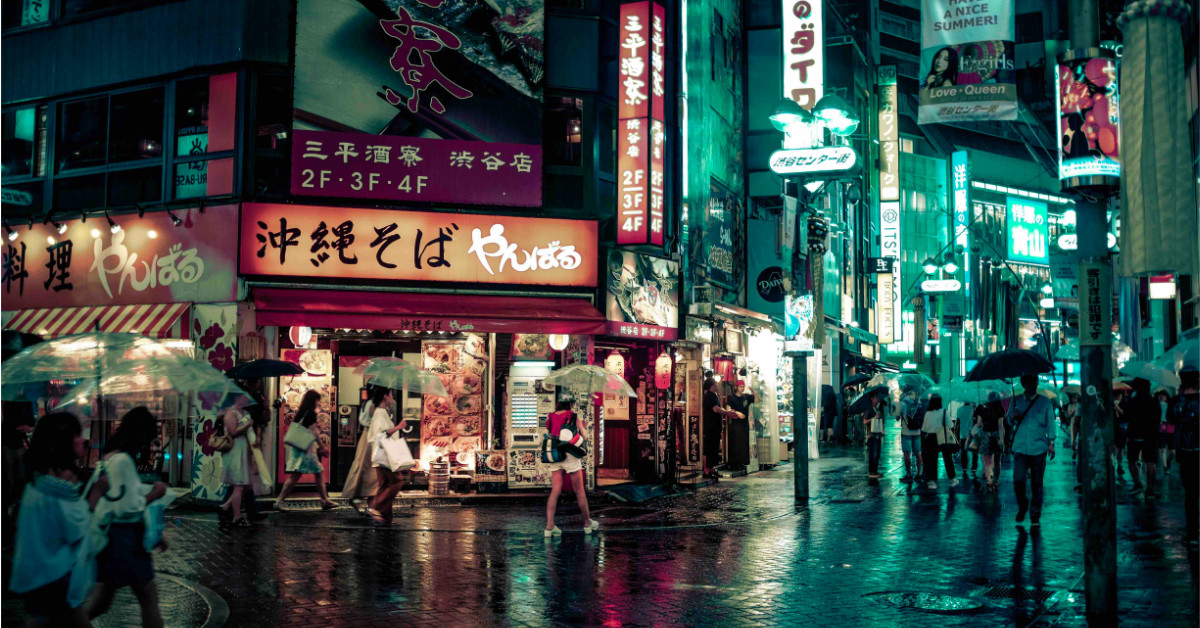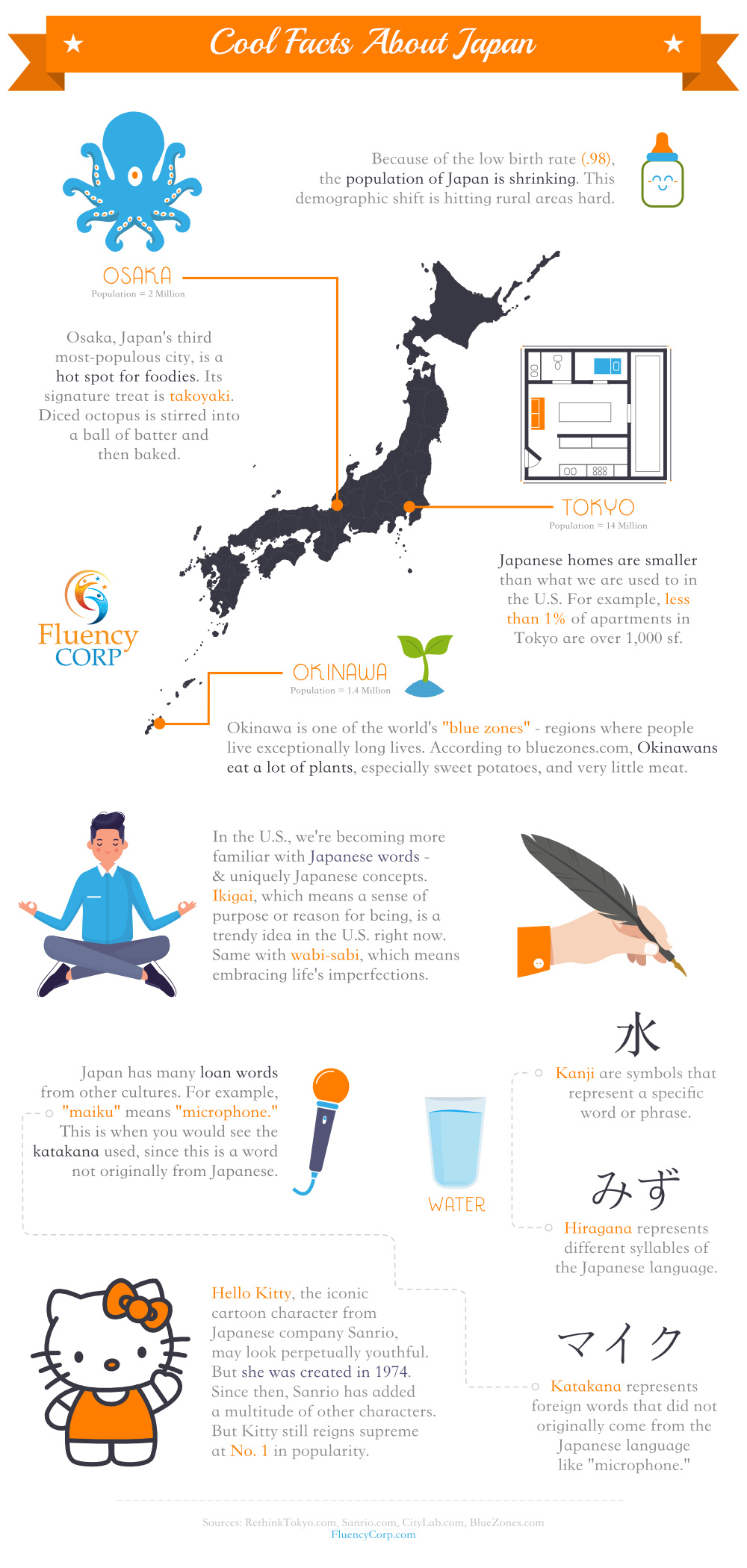
From its culture to its language to its food, Japan is one of the most fascinating places in the world. A lot of people became intrigued with this country thanks to the recent “Queer Eye: We’re in Japan!” episodes on Netflix. And then there are the 2020 Summer Olympic Games coming up in Tokyo.
If you’re moving to Japan, traveling to Japan or just want to learn more about this country, we wanted to share some interesting Japanese facts.
Japanese Culture
- Japanese homes are smaller than what we are used to in the U.S. For example, less than 1% of apartments in Tokyo are over 1,000 square feet.
- Because of a low birth rate, the population of Japan is shrinking. This demographic shift is hitting rural areas hard.
- The Japanese are known for working long hours. Overtime is often required — and unpaid.
- Hello Kitty, the iconic cartoon character from Japanese company Sanrio, may look perpetually youthful. But she was created in 1974. Since then, Sanrio has added a multitude of other characters. But Kitty still reigns supreme at No. 1 in popularity.
- We always recommend listening to popular music as a way to learn a language faster. Hot recording artists in Japan right now include King GNU, Kenshi Yonezu and LiSA.
Japanese Language
- Japanese can be one of the hardest languages for native English speakers to learn.
- Written Japanese uses kanji, symbols that represent a specific word or phrase, and hiragana, which represent the different syllables that make up the Japanese language and katakana, which represent foreign words that did not originally come from the Japanese language. If you’re in Japan, or watching a Japanese movie or TV show, the more complex symbols that you see are likely kanji. The simpler ones are probably hiragana or katakana.
- If you watched “Queer Eye’s” Japan episodes, you became familiar with the honorific suffix “san” (Yoko-san, Matoko-san, etc.). But did you know there’s also a diminutive version: “chan”? It’s most commonly used with the names of children or pets, but there are exceptions. For example, Arnold Schwarzenegger is known as Shuwa-chan in Japan!
- Japan has many loan words from other cultures. For example, “maiku” means “microphone.” This is when you would see the katakana used, since this is a word not originally from Japanese.
- Meanwhile, in the U.S., we’re becoming more familiar with Japanese words —and uniquely Japanese concepts. Ikigai, which means a sense of purpose or reason for being, is a trendy idea in the U.S. right now. (Of course, though, it was around long before we discovered it!) Same with wabi-sabi, which means embracing life’s imperfections.
Japanese Food
- Osaka, Japan’s third most-populous city, is a hot spot for foodies. Its signature treat is takoyaki. Diced octopus is stirred into a ball of batter and then baked. (You can find takoyaki with different fillings if you’re squeamish about octopus.)
- Okinawa is one of the world’s “blue zones” — regions where people live exceptionally long lives. According to bluezones.com, Okinawans eat a lot of plants, especially sweet potatoes, and very little meat.
- Remember the bubble tea trend? It has come back around in Japan.
- One reason for that might be that, just as in the U.S., social media networks have made photogenic food popular in Japan.
- Before you eat a meal in Japan, be sure to say “itadakimasu.” It’s a way of giving thanks for the food.

Share this Image On Your Site!
Please include attribution to FluencyCorp.com with this graphic.
If you’re preparing for an international assignment in Japan, or helping employees of your company get ready to work there, or connecting with your colleagues headquartered in Japan, contact uscontact us at getfluent@fluencycorp.com or (800) 401-3159.










